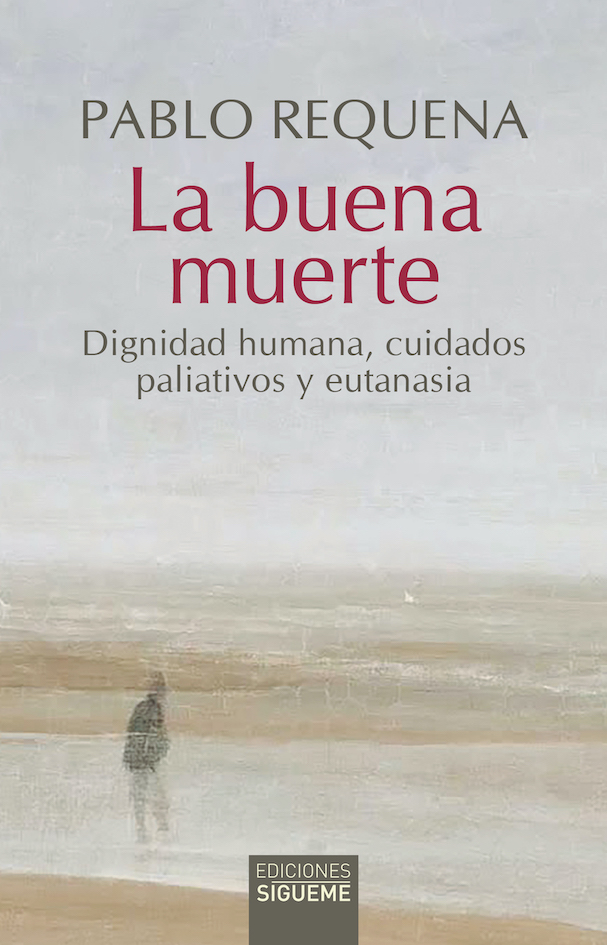We are all afraid of dying. But today's culture, far from providing us with the means to face this final period of our lives in the best possible conditions, assumes that death is the absolute evil and turns its back on it completely. And it does so with the transhumanist proposal to have immortal lives, or with the vindication of euthanasia as a right. Underlying both proposals is the idea that one is sovereign to decide when to end one's life. Life ceases to be a human right, which protects a fundamental good for the person as is his or her life, and becomes a right available to the human being as he or she wishes.
Book

The postmodern approach to the end of life, while appearing to expand individual freedom, is a double fraud. First, because immortal life is not only a chimera but a nightmare. The epic of human existence is associated with our vulnerable and mortal condition. And second, because no one renounces life and asks for euthanasia if his or her life is worth living. And all life has meaning if we are convinced as a society that this is so and that we act accordingly. One asks to die because one is alone, in pain or because one's life is very limited. But if the person is accompanied, his pain is alleviated and he is given the possibility of being himself, however limited he may be, he will not consider asking for his life to be ended.
If it were not for the abuse that is made of the expression, I would not hesitate to emphasize that this book that Pablo Requena has just published is essential for anyone who wants to think about euthanasia and, in general, about the end of life. It will be enjoyed not only by health professionals and public policy makers but by all those who are encouraged to read it. Because the subject cannot be approached with greater clarity, serenity, rigor and open-mindedness. The author is a physician by training, professor of bioethics at the Pontifical University of the Holy Cross and currently the Holy See's representative to the World Medical Association. This training and experience, together with a writing that is in keeping with the best tradition of physician-humanists, has enabled him to offer a brief but enlightening book that is not erudite but up to date, that deals with many issues but all of which are assembled with great coherence.
The book is divided into two parts. In the first, the author asks why we have come to consider euthanasia as an end-of-life option. He focuses on the problem of loneliness, which is the great epidemic of the present time (and much more difficult to combat than Covid-19); on the prolongation of life in often distressing conditions, to which the triumph of medicine over death has led us in the last century; on the existence of a variety of therapeutic options that need not necessarily be exhausted in all cases and which are sometimes abused; on the worrying and growing phenomenon of "feeling a burden to others" that overwhelms many people at the end of their lives. For each of these challenges, he proposes a specific response, based on the defense of the unconditional value of each human being, and presented in such terms that it invites us to think and dialogue rather than to confront each other.
In the second part, he examines the two alternatives proposed in the face of "the cry for help in asking for death": either to accompany to the end or to apply euthanasia. Pablo Requena insists that both logics are opposed to each other. If we care until the end, it is because we are convinced that the person's life is sacred and does not cease to be so because his or her capacities are diminishing. The logic of palliative care, based on the Hippocratic medical tradition, consists in providing effective care that avoids suffering and never in giving death. The euthanasia logic, on the contrary, is based on the acceptance that one human being can give death to another under certain circumstances.
Precisely because the origin of Hippocratic medicine, the basis of today's medicine, consisted in separating the physician who cures from the guru who can also procure death, the author is extremely concerned about the fact that it is normalized for physicians to practice euthanasia. In this regard, he quotes the father of modern medical deontology in Spain, Gonzalo Herranz, who stated that "euthanasia is not medicine, because it does not complete it, but replaces it".
Aware that euthanasia is not a right but the abandonment of the person in one of the most critical stages of his or her life, the book ends by insisting on the need to reverse this situation, repealing euthanasia laws whenever possible and advocating comprehensive assistance to people at the end of life, leaving no one behind.








